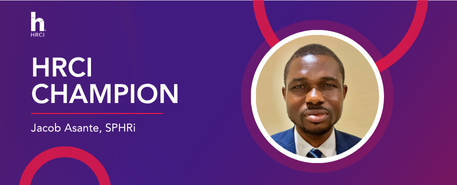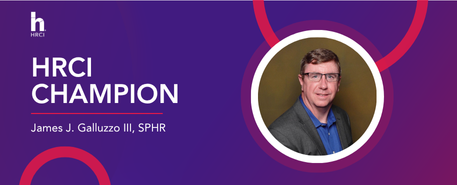
Uncover the art of employee motivation with insights from Michael “Keith” Cutter, Vice President of Talent Strategy at Delek US Holdings, Inc.. Explore how genuine leadership and personal connection can transform workplace dynamics.

Workplace wellness programs offer unexpected benefits like boosting creativity and enhancing team dynamics. Learn how these initiatives can transform organizational culture during Professional Wellness Month.

The Supreme Court's recent unanimous decision reaffirms equal protections under Title VII for all individuals, alongside important legislative efforts and policy shifts at the Department of Labor.

Navigating political discussions in the workplace can be challenging, but the right strategies can help create a positive and respectful culture. Discover how HR and leadership can manage these complex conversations effectively.

Jacob Asante shares insights on leveraging SPHRi certification for continuous growth in public sector HR. Gain practical strategies and inspiration for succeeding in your HR career.

A federal court in Texas has vacated portions of the EEOC's guidance on harassment related to sexual orientation and gender identity, affecting Title VII interpretations. Additional updates include changes to the classification of independent contractors under the FLSA, the commencement of EEO-1 data collection, and the announcement of the 2026 HSA contribution limits.

HRCI partners with Deloitte to launch the HR Academy, a learning platform designed to empower HR leaders and their teams with strategic skills and insights.
.png?sfvrsn=61725baa_1)
Amidst workplace change and shifts in the HR profession, prioritizing self-care is key to maintaining resilience and supporting a healthy work environment. Discover practical strategies for integrating mindfulness and boundary-setting to enhance workplace vitality.
.png?sfvrsn=da574261_0)
The Department of Labor’s reevaluation of the 2024 independent contractor rule, a new bipartisan initiative for paid family leave, and Brittany Panuccio’s nomination to the EEOC are likely to impact U.S. employment laws.

AI is revolutionizing the role of HR by enhancing processes while maintaining a human touch. Explore how continuous learning and AI integration are shaping the future of the workforce.

Learn how HRCI certifications empower military veterans to transition smoothly into civilian HR roles, enhancing their skills and expanding career opportunities.

What are the implications of President Trump's Executive Order on "Restoring Equality of Opportunity and Meritocracy?" Explore its effects on disparate impact liability and what it means for employers today.

Executive presence is a crucial factor in elevating HR professionals to strategic leadership positions within organizations. Learn how developing key traits can shift perceptions of HR from supportive to essential leadership.
.jpg?sfvrsn=dd85d368_1)
A recent executive order has directed federal agencies to deprioritize the enforcement of laws and regulations involving disparate impact liability, a significant shift in discrimination law that may affect hiring practices nationwide.

Explore how political polarization impacts workplaces and strategies to navigate it effectively. Download our whitepaper for expert insights from HR and political professionals.